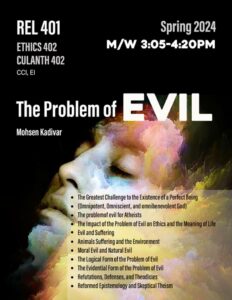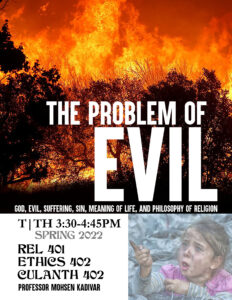
The Problem of Evil
The 2024 course explores the key concepts and major issues of the problem of evil and its three types of responses. ‘The problem of evil’ as the challenge of reconciling the existence of a perfect being (Omnipotent, Omniscient, and omnibenevolent God) with the existence of evil, suffering, and sin has been one of the greatest intellectual problems. The epistemic question posed by evil is whether the world contains undesirable states of affairs that provide the basis for an argument that makes it unreasonable to believe in the existence of God.


